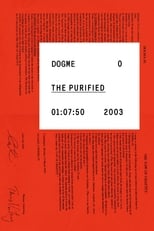
|
|
From Wikipedia, the free encyclopedia Kristian Levring is a Danish director born in 1957 in Denmark. He was the fourth signatory of Dogme95. He lived eight years in France. He graduated in editing at the National Film School of Denmark and has edited a large number of documentaries and feature films besides directing two feature films, among these, Et skud fra hjertet (1986). He is the recipient of some 23 Danish and international awards for his commercials. The King is Alive (Dogme 4) is his third feature film. The King is Alive tells the story of a mixed group of tourists in Namibia, Africa, whose bus breaks down in a remote, abandoned village (formerly a mining town). Facing starvation, dehydration, cabin fever, and death, one of the group decides to stage a production of Shakespeare's King Lear and casts the others as characters. As the thin veneer of civilized behavior breaks down, the group experiences the absurdity of putting on a play (for no audience except one lone indigenous man) in such dire and fatal circumstances. Filmed in stark digital and adhering to the tenets of Dogme filmmaking, The King is Alive is a fascinating study in the dark heart of people under extreme stress. Herzogian in its theme and mood, the film's location (remote Namibia) is as much a character in the film as the actors, like the space ship in Ridley Scott's Alien. The King is Alive features Jennifer Jason-Leigh and Brion James (Blade Runner's "Leon"; Cabin Boy). Dark, tense, and desperate, it stands as a powerful piece of filmmaking. Levring's next film after The King is Alive is called The Intended and features some of the same actors from the former. Set in the jungle of Borneo in the 1920s, it concerns an isolated English settlement/ivory trading station. Similar in nature to The King is Alive, it focuses on what happens to small isolated groups under both internal psychological pressure and external pressure from the environment around them. As The King is Alive was filmed by Dogme rules and restrictions, The Intended instead has steady camera shots (rather than shaky/handheld) and ambient music throughout. Subtle yet powerful, the film explores Conradian contexts through the lens of a female perspective. Its influence can be seen in the Australian frontier film The Proposition. Description above from the Wikipedia article Kristian Levring, licensed under CC-BY-SA, full list of contributors on Wikipedia. |


